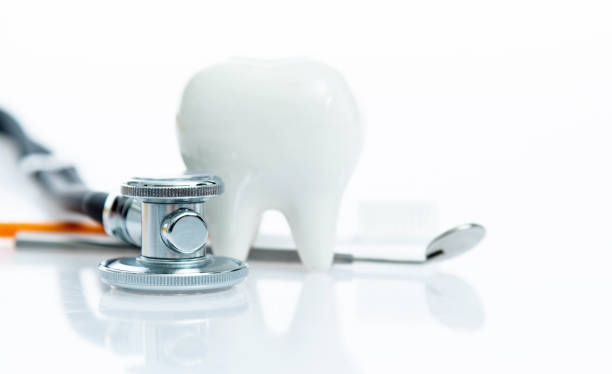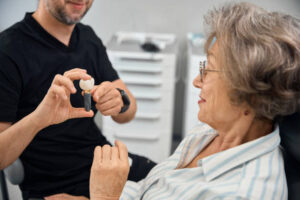Dental emergencies can happen at any time, often when you least expect them. Knowing when to contact an emergency dentist can be the difference between saving or losing a tooth, preventing infections, and alleviating pain. At Fernandez, DMD, we prioritize your dental health and are here to guide you through understanding what constitutes a dental emergency and what steps you should take if you experience one.
What is a Dental Emergency?
A dental emergency is any situation that involves severe pain, bleeding, or trauma to the teeth or gums, requiring immediate attention. Here are some common dental emergencies and how you should respond:
1. Toothache
Tooth pain can range from mild discomfort to unbearable pain. If you experience a toothache that persists for more than a day or is accompanied by swelling, fever, or an earache, it’s crucial to contact an emergency dentist. These symptoms could indicate an infection or abscess that needs immediate treatment.
What to do: Rinse your mouth with warm water and gently floss around the tooth to remove any trapped food particles. Avoid placing aspirin directly on the tooth or gums, as this can cause burns. Over-the-counter pain relievers can help manage the pain until you can see the dentist.
2. Chipped or Broken Tooth
A chipped or broken tooth can be caused by trauma, biting on hard objects, or decay. Depending on the severity, it may lead to pain, sensitivity, or sharp edges that can injure your mouth.
What to do: Rinse your mouth with warm water and save any broken pieces. Apply a cold compress to the outside of your mouth to reduce swelling. Contact an emergency dentist immediately to assess and repair the damage.
3. Knocked-Out Tooth
A knocked-out tooth is one of the most serious dental emergencies. Acting quickly can save the tooth and increase the chances of successful reattachment.
What to do: Handle the tooth by the crown (the part you normally see) and avoid touching the root. Rinse it gently with water if it’s dirty, but do not scrub it or remove any attached tissue. If possible, place the tooth back in its socket and hold it in place. If you can’t, store it in a container of milk or saline solution. Get to the emergency dentist within 30 minutes for the best chance of saving the tooth.
4. Lost Filling or Crown
A lost filling or crown can expose the affected tooth to infection and damage. It can also cause significant discomfort and sensitivity.
What to do: Try to keep the area clean and avoid eating on that side of your mouth. If you have the crown, you can temporarily reattach it using dental cement available at a pharmacy. However, you should see an emergency dentist as soon as possible to properly fix it.
5. Abscessed Tooth
An abscess is a severe infection at the root of a tooth or in the gums. It can cause intense pain, swelling, fever, and even a foul taste in your mouth.
What to do: Rinse your mouth with a mild saltwater solution several times a day to reduce pain and draw the pus to the surface. Seek emergency dental care immediately, as an abscess can spread to other parts of your body and become life-threatening if not treated promptly.
When to Seek Immediate Dental Care
Understanding when to seek immediate dental care is essential. Here are additional scenarios where you should contact an emergency dentist without delay:
- Severe bleeding: If you experience uncontrolled bleeding from your gums or mouth following an injury.
- Severe pain: Intense pain that cannot be managed with over-the-counter painkillers.
- Facial swelling: Swelling that affects your face and potentially your ability to breathe or swallow.
- Infections: Signs of infection such as swelling, fever, or pus.
- Trauma: Any injury to the mouth, teeth, or gums resulting from an accident or fall.
How to Prevent Dental Emergencies
While not all dental emergencies can be prevented, many can be avoided with proper dental care and precautions:
- Maintain Good Oral Hygiene: Brush and floss regularly to prevent decay and gum disease.
- Wear a Mouthguard: Use a mouthguard when participating in sports or activities that could result in injury to your mouth.
- Avoid Hard Foods: Be cautious with hard or sticky foods that could crack or dislodge a tooth or dental work.
- Regular Dental Check-ups: Schedule routine dental visits to catch and treat problems early before they become emergencies.
What to Expect During an Emergency Dental Visit
When you visit Fernandez, DMD for a dental emergency, our team will provide prompt and compassionate care to address your immediate needs. Here’s what you can expect:
- Assessment: We will perform a thorough examination to diagnose the issue and determine the best course of action.
- Pain Management: Our priority is to alleviate your pain and make you comfortable.
- Treatment: Depending on the nature of your emergency, treatment may include medication, temporary or permanent restorations, or emergency dental procedures.
- Follow-up Care: We will provide instructions for at-home care and schedule any necessary follow-up appointments to ensure proper healing and recovery.
Dental emergencies can be stressful and frightening, but knowing that you have a reliable and caring emergency dentist can provide peace of mind. At Fernandez, DMD, we are dedicated to providing you with the highest standard of emergency dental care in Punta Gorda, FL.
If you experience a dental emergency, don’t hesitate to contact us immediately. We are located at 502 E. Olympia Ave., Punta Gorda, FL 33950, and can be reached by phone at 941-639-1124. Your dental health and well-being are our top priorities, and we are here to help you in any dental crisis.
Take care of your smile and remember that prompt action can make all the difference in a dental emergency. Stay informed, stay prepared, and know that Fernandez, DMD is here for you when you need us most.





